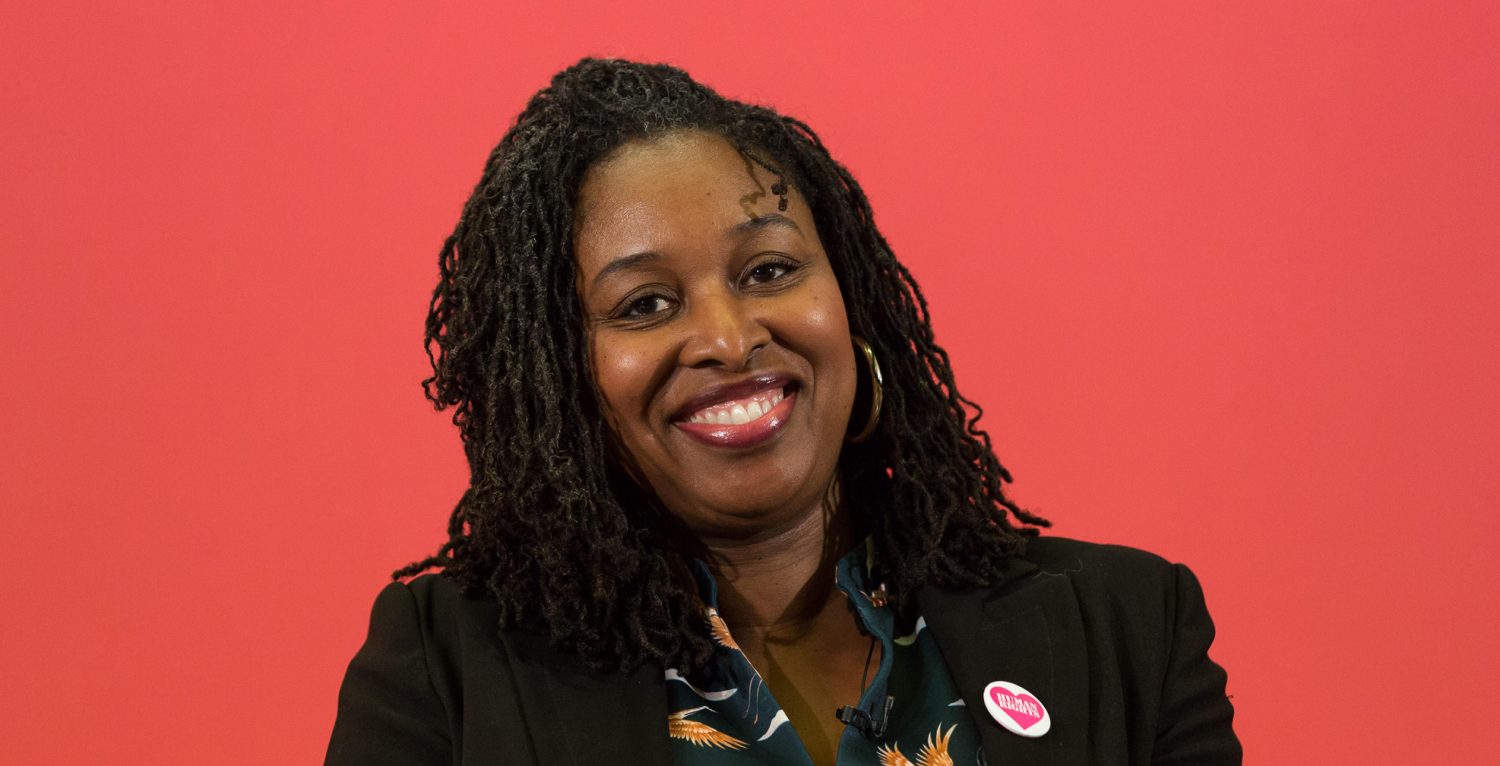The rights stuff
Labour is ready and able to take on the challenge of government, shadow women and equalities minister Dawn Butler tells Kate Murray
Labour MPs are no strangers to getting grief from party activists. But the gentle chiding Dawn Butler has been receiving for not having her new year calendars ready to be delivered in her north west London constituency is, she suggests, instructive for us all as Labour struggles to come together to win the next election. “I have seen an influx of new members in my constituency – they are keen and eager,” she says. “I say: ‘I am sorry they are not quite ready’ and they say: ‘we are waiting, we are ready to go delivering’.”
So when Corbyn critics talk of factionalism, deselections or takeovers, Butler would point them to the potential those new Labour members bring. “It’s exciting to have new keen and eager people who are learning how the system works, asking how do we become more active, how do we become councillors, how do we become an MP, and who are eager to engage in the system. That’s something to be celebrated,” she says. “We are a membership-led organisation and that’s not going to change. Some parties have big donors, so they are money-led organisations. We are a membership-led organisation, so having active members is what we strive for.”
Butler, now the shadow women and equalities minister, is currently in the midst of the debate around sexual harassment in parliament and beyond. When we meet, she has just rushed back from a meeting of the cross-party working group on an independent complaints and grievance policy, set up to tackle harassment and abuse in Westminster. Butler is pleased that harassment is now being addressed in the wake of the Harvey Weinstein scandal – and indeed she has recently talked openly of her own experience of having to wear trousers to work for four years in an early job as a computer programmer because of sexual harassment in the workplace. The culture in parliament has often been a difficult one for women, she says. Post-Weinstein, though, that atmosphere is starting to change.
“What I’ve found interesting is that the conversations are now happening – before people hug you, they are asking ‘Is it ok to hug you?’” Butler says. “It may be kind of tongue in cheek but the conversation is happening – you are not just assuming it’s OK to hug somebody and invade their personal space. There is a greater awareness, and that might be coming out of fear but ultimately we want it to be out of understanding and respect and dignity.”
“There’s so much to do in terms of changing this place – to be fair there is desire to make it happen but you do have some women who say: ‘well I had it tough, why should you have it easy?’ kind of thing which is really disappointing. They don’t realise that attitude is part of the problem.”
Butler also takes issue with a strand of ‘white feminism’ which does not take enough account of the experiences of black women, disabled women or working-class women. “We have to get to the point where equality is equality – when you’ve got that understanding that everyone is equal and that dignity and respect should flow through everything we do, then it changes your outlook on life.”
But if harassment and discrimination are to be effectively tackled, fundamental changes will be needed to the way those in power make decisions and implement their policies. “What strikes me is that when you devalue women, when you devalue their role in society, when you devalue motherhood and children and the things that women do, when you exemplify masculinity, then all that leads to sexual harassment,” she says. “The argument I’ve got with Philip Hammond’s latest budget, which he is currently refusing to do an equality impact assessment on, is that it is devaluing women.”
Women have borne 86 per cent of the burden of austerity, research from the Commons library shows. Benefit cuts, along with controversial measures such as the ‘rape clause’ on child tax credits are the reason why Butler has declared that Theresa May is no friend to women. But Butler concedes she does feel for the prime minister – on one level at least. “I feel sorry for Theresa May in a way: what will her legacy be?” she asks. “All politicians want to leave a legacy. But what will hers be – other than a really bad Brexit? She talked on the steps of Number 10 about tackling burning injustices and all she has succeeded in, with almost all of her policies but certainly the policies in my brief as shadow women and equalities minister, is adding fuel to the fire. We’ve just seen more and more injustices, more and more people living in relative poverty and more and more women suffering.”
Labour in government, Butler claims, made sure it looked at the impact of its policies on equality across the board – and, thanks to its women MPs, actively pursued policies that made a real difference for women. Were it to form the next government, Labour would build on that record, she adds, tackling some of the structural barriers to equality by legislating in areas such as ‘name-blind’ recruitment and women on company boards. “There is so much that Labour will do differently. It’s built on our principles as the party of equality and the party of dignity and respect.”
She adds that a Labour government would tackle some of the worst impacts of austerity on disadvantaged groups, properly funding women’s refuges, for example, and addressing period poverty. And there’s also work undone from the last Labour government, when Butler was a minister for young citizens and youth engagement. “There are things that we started that I would have loved to have finished – [such as] making sure youth provision is ringfenced in local authorities so they have to spend a certain amount of their budget on youth services,” she says. “There were the apprenticeships that the coalition scrapped which they are bringing back but slowly. We were working with banks and businesses and organisations, developing a good working relationship with them to give young people from all groups and communities, some of them disadvantaged, a really good start.”
But before it can implement anything, Labour has to win a general election and Butler admits there is still work to be done to win support from the electorate. “We have to do more – we have to convince people who are not convinced by us in order to win a general election,” she says. “But the fact that [shadow chancellor] John McDonnell is talking to all kinds of people in businesses and banks and they are engaging in real conversations is testimony to how far we’ve come, how far we are progressing and how seriously we are taking being a government in waiting.”
One of Labour’s trump cards, Butler believes, is the fresh connection Jeremy Corbyn has built between politicians and young voters which became clear during the election campaign. “I was walking around filming some young people and asking them ‘why do you like Jeremy Corbyn?’” she recalls. “He is not your young, slick, wearing Armani suits type that you would automatically think people would like. I remember one young person said ‘well it’s like grandad isn’t it and everybody loves grandad’. They loved the authenticity of Jeremy as a politician and that rubs off – it’s nice to know you can be your true authentic self at work.”
So has that been liberating for the Labour frontbench? “There’s obviously discipline that has to happen – we are preparing for government so there is discipline that comes with that – but it’s really nice to have policies where we can go out and say you know what this is a really good policy and this is what we believe in.”
Brexit, of course, dominates everything at the moment – and here, Butler might well be displaying some of that discipline. After all, she famously stepped down from the shadow cabinet over the triggering of article 50 only to return seven months later. She now insists that Labour’s line on Brexit has been the correct one.
“The Labour party has been proved right on the stance it’s taken from the very beginning. When the Labour party talked about having transitional arrangements, first of all it was scoffed at and laughed at and then 13 months down the line, the government agreed that that was the way forward.”
Perhaps, she suggests, Labour is ‘not so slick at PR’ in getting these messages across. But, she adds: “We are right on the issues and we are right on the fundamentals.”
“We have always said that the government should not talk about a no-deal Brexit, that they should strive to get a negotiated deal and we have also always said as a government in waiting that the sensible thing is not to take anything off the table and to negotiate everything,” she says. “So even though when we leave the EU, we might not be in the customs union as it currently stands, we can negotiate to get as many benefits as we can. The fact that none of this is happening worries me but I am so confident in our Brexit team and I know Keir Starmer will be putting forward Labour’s position on where we want to go next on Brexit. I know it will be a sensible position.”
Many might see the chaos of negotiating any sort of Brexit and its aftermath as a poisoned chalice. But Butler insists Labour will not shirk the challenge should the opportunity to form a government earlier than 2022 arise. “If the Labour party can stop the damage of this Conservative government, weakly propped up by the DUP then we need to do that for the good of the country. Whatever challenges that brings we will face head-on, with competence, in the firm knowledge that we want to make our country more equal and more fair,” she says.
A trade union officer before she became an MP, Butler recently won an MP of the year award for her work on equality, including being the first member to make a speech in the house in British sign language. “It was quite emotional engaging a whole section of society who felt completely abandoned and unheard – literally – in parliament. To be able to highlight that was just a real honour for me,” she says.
The impact of austerity means fighting, as a united party, for a Labour government is more crucial than ever, she adds. “If as a party we hadn’t had two leadership elections in the space of a year we probably would have done even better in the general election – that’s a lesson to be learned. Going forward united means that we will get into government.”
In the meantime, there is a big job to be done holding to account the government politicians who, she says, lack ‘the compassion and diversity to see things through a different lens other than their own’.
“There should be an MP swap like the wife swap TV show, where MPs from the leafy suburbs come in and just listen to some of the stories MPs like me hear. It might just change their decision-making.”

